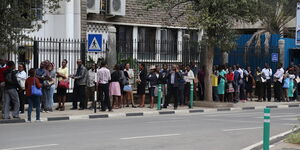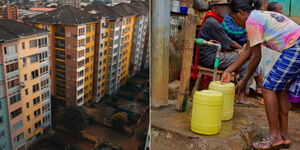The government through the Ministry of Agriculture on Tuesday, July 14 warned of an acute maize flour shortage, which could see the cost of the commodity shoot up.
Speaking to the media on July 14, John Kamanja explained that the shortage is due to low maize production in the country. He attributed this to the rainfall shortage in the country.
The cultivation of Kenya's main staple food is dependent on climate patterns. This year, farmers planted late as they waited for the rains which have become increasingly unpredictable.
He noted that the low rainfall was caused by rapid deforestation in most parts of the country.
“There will be a maize shortage this season due to the harsh weather being experienced in the country,” he said.
Furthermore, Kanjama stated that attacks by pests such as the fall armyworm and locusts and diseases have also led to the low yield of production.
He urged maize growers in Subukia, Gilgil, Lanet, Ndondori, Naivasha, and Mai Mahiu to uproot maize stalks affected by fall armyworms.
In addition, farmers have put the ministry on high alert over the circulation of fake seeds in the market. The seeds reduce the quality as well as the quantity of the crop produce.
In Trans Nzoia, maize production has reduced by close to 30%. Speaking to Citizen TV on July 14, the farmers cited high soil acidity as the cause of the reduction of production.
Agricultural experts stated that high acidity is caused by high carbon content in the soil.
In April 2021, the ministry made projections of an excess of 11.8 million bags of maize protecting its move to ban the importation of maize from neighbours Uganda and Tanzania.
The low production is also caused by a reduced number of maize farmers who ditched the crop for other crops due to low-profit margins.












